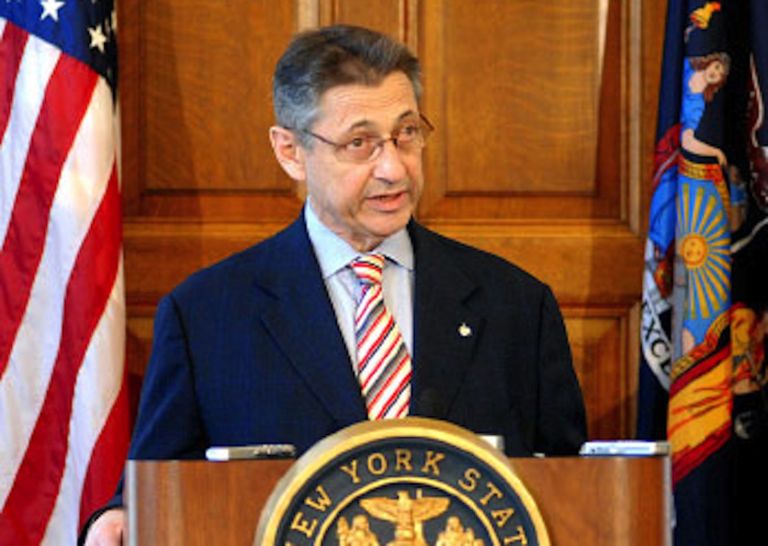
A New Hyde Park-based real estate company allegedly paid former state Assembly Speaker Sheldon Silver to “kill” a proposed substance abuse clinic, according to a new filing in the federal corruption case against Silver.
In a group of motions to admit new evidence to their case filed Friday, federal prosecutors said Glenwood Management Corp., which has an office in New Hyde Park, approached Silver in November 2011 after a state agency approved a methadone clinic to open near one of the developer’s Manhattan buildings.
Silver talked with officials from the agency, the filing says, and the clinic ended up not opening. Glenwood’s lobbyists sent a letter to the building’s residents with the news, praising Silver’s “outstanding efforts.”
When another clinic was proposed for the same spot in October 2013, the prosecutors allege, a Glenwood lobbyist wrote in an email, “I thought Shelly killed this damn thing?!” Another replied, “We need to kill this again.”
Glenwood representatives were unavailable for comment at the time of publication.
Silver’s relationship with the real estate firm its 100-year-old founder Leonard Litwin, known as “Developer-1” in court documents, is central to the corruption cases against both Silver and former state Senate Majority Leader Dean Skelos.
The two legislators allegedly took advantage of Glenwood’s reliance on favorable real estate regulations from the state, such as tax breaks and rent-control measures.
Silver, prosecutors say, convinced Glenwood and another developer to hire a real estate law firm in exchange for $700,000 in kickbacks from that firm disguised as referral fees. By exerting his official control over state regulations and contracts, Skelos allegedly pressured Glenwood vice president Charles Dorego into securing more than $200,000 in payments from companies in which he and Litwin had stakes.
Silver’s indictment said he lied about his sources of income, flouting disclosure laws. He publicly said none of his legal clients had current dealings with the state, though Glenwood did at the time, prosecutors said.
The evidence filed Friday may or may not be allowed in Silver’s November trial in federal District Court.
While the clinic incident is not mentioned in Silver’s indictment, the prosecutors argue in the filing that it should be admitted because it shows he used his official power to maintain his relationship with Glenwood.
“(T)he evidence described above is inextricably linked with the charged conduct and is necessary to complete the ‘story of the crime(s) on trial,’” the filing says.
Litwin is a major political spender in New York.
Between 2000 and 2014, he made 1,834 donations totaling $13.2 million, often using limited liability corporations to circumvent campaign spending limits, the Gotham Gazette reported.
According to a Friday defense filing, more than $10 million in political donations were made in Glenwood’s name between 2005 and 2014; $200,000 of that went to Silver and political action committees affiliated with him.
Silver’s lawyers argued those contributions should not count as evidence because they were completely legal and comprised a small percentage of the company’s total political spending.
Neither an attorney of Silver’s nor a representative from his office was immediately available to comment.






